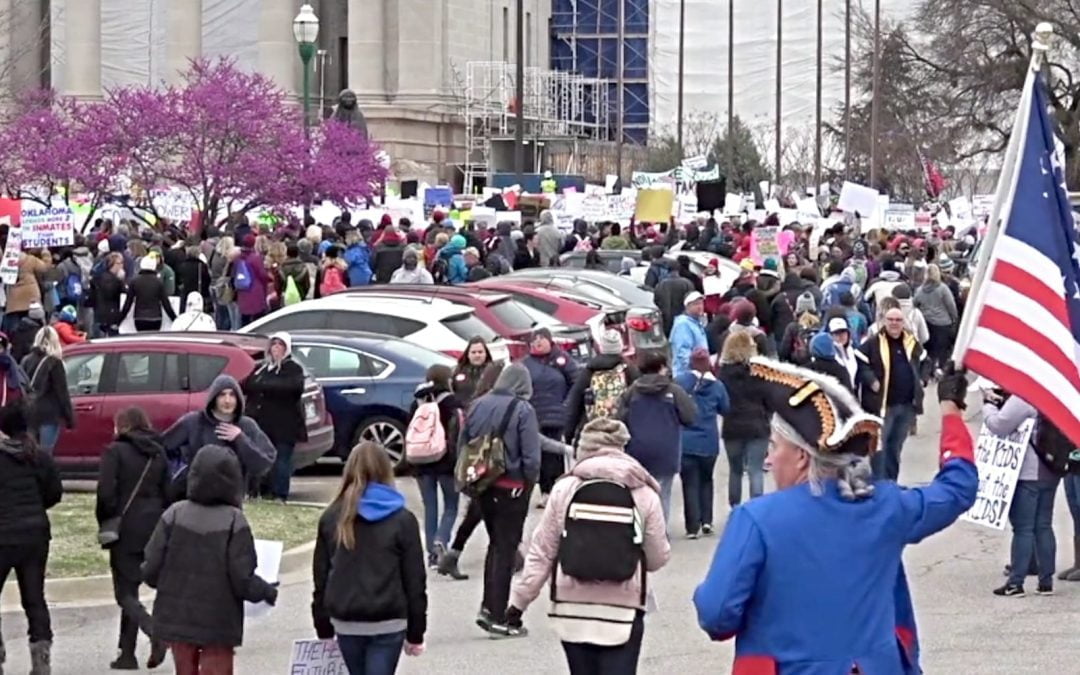School’s back in session.
After a too-short summer – have you noticed how summer vacations are shrinking? – the public schools are again open.
You’ve likely seen the little faces and read the happy stories of hope and promise in print and on social media. All well and good, all true.
But the heartwarming back-to-school stories about teachers’ personal sacrifice for their mission in life have taken a little harder turn this year.
Likely, you saw stories about teachers spending hundreds of dollars for school supplies out of their own pockets.
Because the schools don’t have enough school supplies. Because the public schools can barely keep the doors open as is. Because the U.S. won’t do the right thing on taxes to fund the schools.
So, teachers pay for construction paper and glue – and children’s clothes, and even food – out of their personal, hard-earned dollars. Even as their state legislatures kill their pensions.
Forgive my rant. And forgive teachers if they’re fed up, too, enough to go on strike, amazingly, in Red America. First in West Virginia, and then Oklahoma, Arizona and in my state of Kentucky.
Many of them are Christians, active in our churches. They do not strike out of selfishness. They go out to advance their mission to advance our children, not for their own kids, but so they can better teach someone else’s kids.
Rising up early in the morning, doing paperwork and answering parents’ emails until late each evening, all for someone else’s kids. My kids, your kids.
They can’t do it without organizing to resist – to resist budget cuts, to resist charter schools taking public school dollars and on and on.
This is my 30th year as a labor lawyer. Everything has changed in those 30 years.
Despite a tremendous victory over right-to-work-for-less in Missouri a few weeks ago, unions aren’t getting stronger faster.
We’re trending toward becoming “Right to Work America,” so unions aren’t the bulwark against corporate greed that we once were, for good wages, safety on the job and respect for everyone who works.
As for me, I no longer do the privatized work of organized labor as we knew it in the heyday of the 20th-century American economy – National Labor Relations Board (NLRB), strikes and arbitration.
My work is in court, federal court mostly, wage-hour class actions, discrimination and representing the harassment victims of the #MeToo movement.
Change, in this case, mostly isn’t good. But we adjust.
In Jobs With Justice, we constantly refer to the future of work, and constantly probe and experiment to achieve strength and solidarity in an environment of privatization, disappearing retirement benefits, gig work and student debt.
In a very tough, fragmented employment environment, the teacher uprisings of 2018 are a bright spot and a path forward.
To build upon the Scripture, the teachers of the “little child[ren] will lead them.”
At this September’s Angela Project conference in Louisville, we’ll talk about resistance and resurrection in education.
We’ll hear from Pastors for Texas Children about church folk taking a stand for teachers and public education.
We’ll hear from the National Association for Equal Opportunity in Higher Education, about the power and promise of America’s rising historically black colleges and universities, including Louisville’s own Simmons College of Kentucky.
Labor Day is almost here. As you’re prepping the grill for a day of food and relaxation, remember the working people who brought you this long weekend.
The best years of the “American Century” – the 20th century – were built upon the post-war aspirations, resistance and amazing productivity of America’s unionized workers.
The best years to come of the 21st century will be built upon the future of labor in hope, prayer, resistance and promise.
Editor’s note: This article is part of a series for Labor Day 2018. The previous article in the series is:
The End of Work: On Celebrating Labor Day Well by Myles Werntz
Working in law, labor, faith and politics, he is a union-side lawyer and former AFL-CIO official who has served the United Food and Commercial Workers for years. National legal counsel for Jobs with Justice, he represents historically Black Simmons College of Kentucky in Louisville.


